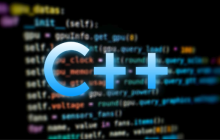-

- c++中的深拷贝和浅拷贝有什么区别_c++对象拷贝机制对比分析
- 深拷贝会为指针成员重新分配内存并复制数据,确保对象独立;浅拷贝仅复制指针地址,导致多个对象共享同一内存,易引发释放错误和悬空指针。
- 后端开发 871 2025-10-25 08:32:02
-

- 使用 PHPSpreadsheet 在 XAMPP 服务器上保存 XLSX 文件
- 本文档旨在指导开发者如何使用PHPSpreadsheet库在XAMPP服务器上自动生成并保存XLSX文件,尤其是在WordPress环境下通过CronJobs实现定时导出数据并保存为XLSX文件的场景。文章将详细介绍如何修改代码,避免直接输出到浏览器,而是将文件保存到服务器指定目录。
- 后端开发 879 2025-10-25 08:31:31
-

- 如何使用 PHP 统计 JSON 文件中特定子目录下值的总和
- 本文旨在指导开发者如何使用PHP遍历包含JSON文件的子目录,并计算每个子目录中JSON对象特定字段的总和。通过本文,你将学习如何读取目录结构、解析JSON数据以及进行数值累加,从而实现按月统计访客数量等需求。
- 后端开发 748 2025-10-25 08:31:01
-

- 如何使用 AJAX 和 PHP 正确地向下拉菜单添加多个选项
- 本文介绍了如何使用AJAX从PHP脚本接收多个结果,并将这些结果正确地添加到HTML下拉菜单中。通过将PHP输出格式化为JSON,并在JavaScript中解析JSON数据,可以避免将所有结果连接成单个字符串的问题,从而实现预期的下拉菜单选项填充效果。
- 后端开发 838 2025-10-25 08:30:01
-

- Go语言反射:获取结构体字段的底层值与类型断言实践
- 本文深入探讨了在Go语言中使用反射获取结构体字段底层值的方法。当通过反射获取到reflect.Value类型的字段时,若需对其进行具体类型操作,可利用Value.Interface()方法结合类型断言将其转换回原始类型。这种方式避免了持续的反射操作,提高了代码的简洁性和执行效率,尤其适用于已知字段类型的情况。
- 后端开发 425 2025-10-25 08:29:00
-

- Go语言错误处理:深入理解接口与具体类型的安全转换
- Go语言的error是一个接口,允许任何实现Error()string方法的类型作为错误返回。当需要从通用的error接口中获取其底层具体的错误类型(如*flags.Error)并访问其特有字段时,不能进行直接的类型转换。本文将详细讲解Go中接口与具体类型转换的原理,并提供使用类型断言(typeassertion)结合“逗号-ok”模式进行安全、准确类型提取的最佳实践。
- 后端开发 297 2025-10-25 08:28:23
-

- PHP中向数组内对象添加属性:JSON数据处理实践指南
- 本教程详细阐述了在PHP中如何向数组内部的对象添加新属性。我们将探讨两种主要场景:一是直接构建包含所有所需属性的完整数据结构,二是针对已有的JSON字符串,通过解码、修改PHP数据结构,再重新编码的方式,动态地向其内部对象添加或更新属性。通过具体代码示例,帮助开发者高效、安全地处理JSON数据。
- 后端开发 378 2025-10-25 08:28:01
-

- c++怎么使用条件变量std::condition_variable_c++条件变量实现线程同步
- std::condition_variable需与std::mutex配合使用,通过wait()阻塞线程并释放锁,在条件满足后由notify唤醒,常用于生产者-消费者模型中的线程同步。
- 后端开发 301 2025-10-25 08:28:02
-

- 使用Go反射动态获取结构体字段名称
- 本文深入探讨了如何利用Go语言的reflect包来动态获取结构体的所有字段名称。通过reflect.ValueOf获取结构体实例的反射值,并结合FieldByNameFunc或遍历Type().Field(i)的方法,我们可以高效地提取出结构体的字段列表。这对于实现通用数据处理、序列化、验证或ORM等场景至关重要,使代码更具灵活性和扩展性。
- 后端开发 267 2025-10-25 08:25:14
-

- Golang如何通过反射实现对象深拷贝
- 答案:Go语言中通过reflect包实现深拷贝,利用反射遍历类型字段递归复制,处理指针、结构体、切片、map等类型,避免共享底层数据,确保完全独立的副本。
- 后端开发 140 2025-10-25 08:24:02
-

- C# 如何提取xml中所有文本节点的内容
- 使用XDocument提取XML所有文本节点:解析XML后通过DescendantNodes().OfType()获取文本节点,Select(t=>t.Value.Trim())提取并去除空白,Where过滤空值,可处理CDATA,结果输出为“张三”“25”“这是一条备注信息。”。
- 后端开发 256 2025-10-25 08:22:02
-

- 编程中“有界”(Bounded)的含义及其在并发编程中的应用
- 在编程中,“有界”(Bounded)通常指一个数据结构或资源具有明确且有限的容量。在并发编程,特别是Go语言的通道(channel)中,一个“有界”通道意味着它有一个固定的缓冲区大小,当通道满时发送操作会阻塞,当通道空时接收操作会阻塞。这种机制有助于实现流量控制和资源管理。
- 后端开发 688 2025-10-25 08:21:19
-

- 使用 AJAX 和 PHP 获取并填充下拉菜单的正确方法
- 本文旨在解决在使用AJAX从PHP脚本获取数据并填充下拉菜单时,数据以连接字符串形式出现的问题。通过将PHP输出格式化为JSON,并在JavaScript中正确解析,可以实现将每个数据项作为下拉菜单的独立选项显示。
- 后端开发 717 2025-10-25 08:13:45
-

- OpenCart 3.0 联系我们表单邮件发送故障排查与解决
- 本教程旨在解决OpenCart3.0网站“联系我们”表单无法发送邮件的问题。文章将引导用户从前端表单提交动作入手,逐步追溯到后端控制器逻辑,通过系统化的调试方法,定位并解决邮件发送失败的根本原因,确保网站通信功能正常运作。
- 后端开发 379 2025-10-25 08:13:01
-

- Azure PHP Web应用中pdo_mysql扩展的正确启用方法
- 本文详细介绍了在AzureWebApp环境中,如何正确启用pdo_mysql扩展,以解决PHP应用(如Laravel)因缺少该驱动而导致的数据库连接错误。针对SSH与Kudu/Bash终端中php模块列表不一致的问题,文章阐述了不同PHP运行环境配置文件的差异,并提供了定位、修改正确的php.ini文件及验证配置的步骤,确保您的PHP应用能够顺利连接MySQL数据库。
- 后端开发 183 2025-10-25 08:12:01

PHP讨论组
组员:3305人话题:1500
PHP一种被广泛应用的开放源代码的多用途脚本语言,和其他技术相比,php本身开源免费; 可以将程序嵌入于HTML中去执行, 执行效率比完全生成htmL标记的CGI要高许多,它运行在服务器端,消耗的系统资源相当少,具有跨平台强、效率高的特性,而且php支持几乎所有流行的数据库以及操作系统,最重要的是





























